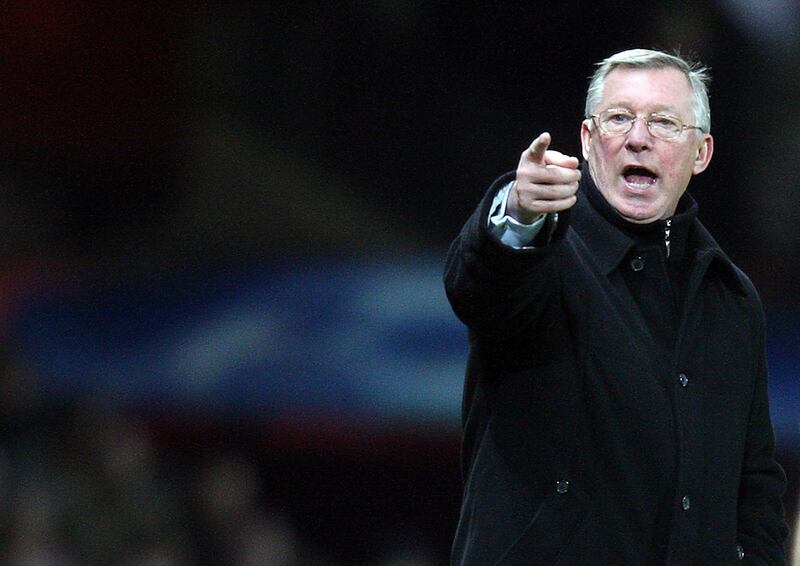The great and good of football will gather in central London Saturday night to pay homage to a humble book that changed the world.
No, not Sir Alex Ferguson's second autobiography but the original Football Association Minute book, in which the first rules of the modern game were recorded by Ebenezer Cobb Morley and chums precisely 150 years earlier.
It promises to be a magnificent occasion despite the continued objections of a few purists who insist that a different document should be centre stage.
This document — OK, it is the back of a napkin — is a slightly different set of rules, allegedly drafted by Morley toward the latter part of the same evening, when the solicitor and keen blazer-wearer was in what some would argue was a more perspicacious mood.
I shall let you be the judge of that by reprinting a section here.
• The maximum length of the ground shall be 200 yards, the maximum width shall be 100 yards. The maximum length of a player’s hair shall be one yard, the maximum breadth of his hair band shall be three inches.
• The game shall be commenced by a place kick from the centre of the ground following the usual one-minute silence, with each team permitted to nominate a maximum of three tragic losses to the football family per match.
• The goal shall be defined by two upright posts, eight yards apart, with a large Scandinavian standing between them and an advertisement for an online bookmaker to his rear.
• A goal shall be won when the ball passes between the goalposts, unless it takes place at Old Trafford. In which case, it is up to the discretion of the referee.
• After a goal is won, the losing team shall be entitled to kick-off. The winning team shall be entitled to a maximum of five minutes in which to hug, kiss, genuflect, point heavenwards to indicate deceased relatives or perform an amusing group mime that seems a little pointless at the time but shall go viral on YouTube.
• When the ball is in touch, one player from either side shall automatically raise his hand to claim rightful possession, regardless of who touched it last, thus rendering the exercise entirely pointless.
• Neither tripping nor hacking shall be allowed, unless the tripper or hacker happens to be English and his adversary a Frenchman or some other foreign breed. In which case, it shall be decreed that he is “a good honest boy, he won’t have meant the lad no harm”.
• No player shall use his hands to hold or push his adversary using force or violence beyond that which is universally understood to be “just a bit of handbags”.
• No player shall be allowed to wear protruding nails, iron plates or gutta-percha on the soles or heels of his boots, nor indeed anywhere else that may obscure the manufacturer’s branding or logo.
• No player shall run with the ball. Every player shall run down the clock.
Every Englishman shall take pride that these rules were formulated in his own country upon this historic date. And around two per cent of them might get around to actually reading them.
*
*
Beckham likely past such petty squabbles
*
There is something of the George-Best-hotel-porter about Sir Alex Ferguson's unflattering verdict on David Beckham in his new autobiography.
“At some point in his life he may feel the need to say, ‘I made a mistake’,” says Sir Alex, with reference to Beckham’s tendency to prioritise his personal brand above Manchester United’s success.
Quite when that moment will be, Sir Alex did not specify.
Perhaps it will come when Beckham is flying on his private jet between his luxury homes on the various continents where he is now a household name and a byword for balancing soaring ambition with gentle humility, kindness and decency.
Yep, I can imagine a man can feel pretty dark during such moments.
Of course, Sir Alex’s achievements in sport vastly outstrip Beckham’s.
And yes, he may be right to say Beckham could still be at United today if he had only agreed to become yet another silent, unquestioning henchman in the mould of Giggs or Scholes.
But Beckham had the ability to lift his eyes and catch sight of a world beyond the narrow confines of Old Trafford — and he wanted a piece of it.
Does that really make him a lesser man than his old mentor?
Nor does Beckham’s refusal to condemn Sir Alex’s words, a la Roy Keane, scream of weakness to me.
Rather, it suggests a man who has long since risen above the petty rows and squabbling of English football and can easily shrug off a few stinging words designed to flog books.
Like the porter nearly said: Oh, Mr Beckham, where did it all go wrong?
sports@thenational.ae
Follow us on twitter at @SprtNationalUAE





